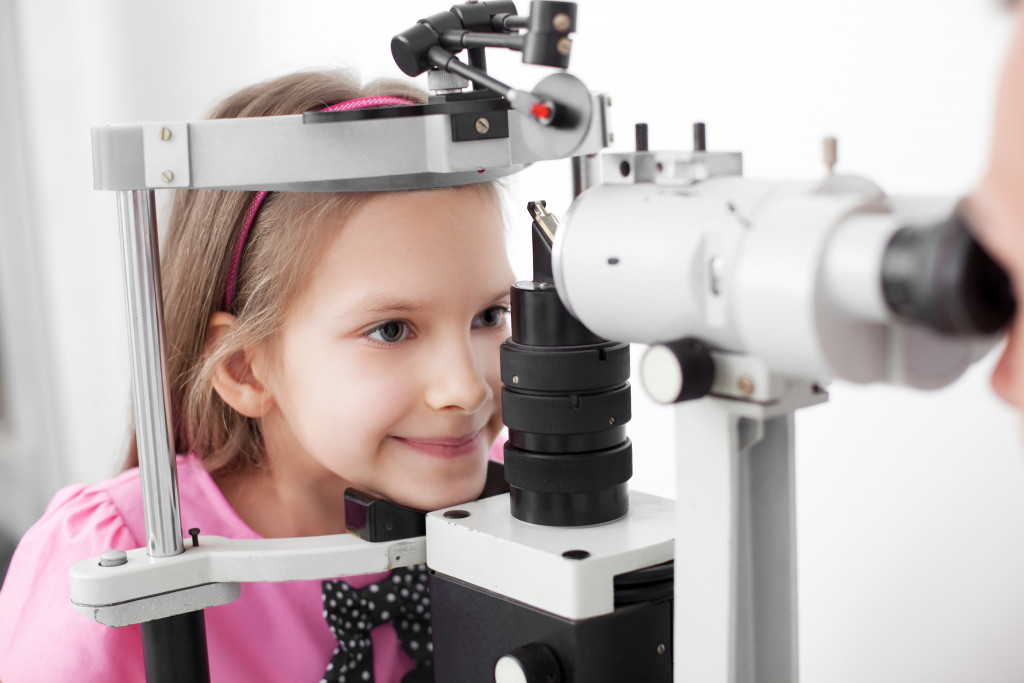Sometimes, having perfect vision isn’t up to us. Thanks to genetics, some people are more likely to have a perfect 20/20 vision than others, especially as they age. For the most part, deteriorating eyesight is out of our control. However, there are certain habits, little everyday habits that affect a person’s sense of sight.
We are too busy going about our day to realize how much our actions can affect the health of our eyes. Here are some ways we might be affecting our vision without realizing it.
Skipping Annual Eye Checkups
Similar to your regular general checkup with your doctor, seeing an ophthalmologist just as often is crucial to keeping your eyes and vision healthy. This way, eye infections, and other problems may be prevented or detected beforehand. Maybe you need glasses for macular degeneration or a change of prescription glasses, you just didn’t know. Additionally, knowing the state of your vision before it gets worse saves you from future migraines and eye strain. Seeing your eye doctor every year makes a difference in preserving the health and condition of your eyes.
Excess Exposure to Blue Light
Blue light from phone screens and other electronics may cause eyestrain, blurry vision, and more. Blue light, in big doses, can increase your chance of developing eye disease. Your retinas may also be harmed by blue light. This is referred to as phototoxicity. The degree of damage is determined by the wavelength and the length of exposure.
Not Wearing Sunglasses
Many people wear sunglasses for comfort, especially on sunny days. But did you know that they’re important for protection too? Too excess exposure to light, specifically ultraviolet light, can cause a temporary eye condition called photokeratitis. This condition affects the corneas of the eyes, temporarily damaging them along with the conjunctiva of the eye. Due to ultraviolet rays, your eyes can suffer from short-term or even long-term damage. Indirect sunlight is enough to cause damage.
Reflected light from water, snow, and other reflective surfaces can be enough to affect your vision. Moreover, other sources of ultraviolet light include laser lights, electric sparks, desk lamps, and tanning beds.

Smoking
It’s no secret that smoking puts your health at risk in many ways. One of the less-known health risks is diminished vision. Frequent smoking can increase the risk of developing cataracts, dry eye syndrome, glaucoma ad diabetic retinopathy, and macular degeneration. If you’re currently trying to wean off smoking, this is one more reason for you to do so.
Using Expired Eye Makeup
Speaking of bad habits, keeping makeup that’s months, maybe even years, past their prime is a bad habit. Old eye makeup can contain infection-causing bacteria, especially if they’re cream or liquid-oriented. It’s also important to avoid sharing eye makeup with anyone to avoid the transfer of bacteria as much as possible.
Not Getting Enough Sleep
Another bad habit to break is not getting enough sleep. If it can be helped, change your routine to accommodate your sleep such that you’re able to get the required amount of sleep needed. Sleep deprivation can cause eyes to twitch, have blurry vision, and become more sensitive to light. If sleep deprivation is not corrected, it may cause negative health outcomes for your eyes.
Rubbing Your Eyes
Although it feels nearly impossible to fight the urge to rub, it’s wiser to do so regardless. Keeping dirt and bacteria away from your eyes requires avoiding any contact with them, especially from your hands. If eye-rubbing is done frequently, the transfer of germs can even cause pink eye and other eye problems.
Relying on Eye Drops Too Much
Over-the-counter eye drops are sometimes important, especially when the eyes are dry and need some lubrication. But relying too much on them may irritate the eyes in the long run. Eye drop solutions can contain preservatives, which are present to extend their shelf life. However, the chemicals present in eye drops can irritate the eyes. That’s why there’s a recommended amount of drops per day. Be sure to read the instructions before using them. To add, be extra careful about the tip of the bottle. Be sure to not get anything in contact with it to prevent it from getting contaminated.
No matter how trivial most or all of this may seem, they still contribute to the degradation of our eyesight. These only seem trivial because they have become so normalized when these should be controlled. Moreover, some habits are just worth letting go of, especially when they affect other parts of our body, too.




